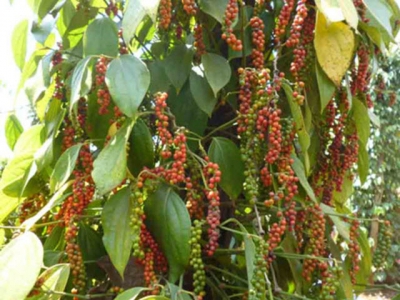Value of pepper exports feeling the grind

The average price of exported pepper saw a sharp drop during the first half of this year and any rebound is forecast to be difficult to achieve in July and the later months of the year, according to the Agro Processing and Market Development Authority (AgroTrade) under the Ministry of Agriculture and Rural Development.
Vietnam exported around 132,000 tons of pepper valued at US$453 million during the first six months of 2018, up 5.1% in volume but down 36.2% in value over the same period last year.
Major consumers of Vietnamese pepper in the first five months included the US (making up 18.7% of market share), India (9.6%), Pakistan (5.4%), Germany (4.3%) and the United Arab Emirates (4.1%).
The decline in export value was attributed to the 61% decrease in export price compared to the same period last year, falling to just US$3,438 per ton.
On the domestic market, as of June 23 pepper prices had fallen to between VND53,000 and 56,000 per kilo, around VND3,000 less than the same period last year and VND2,000 less than the early months of this year.
Many growers cut down plantation areas and switched cultivation to focus on other trees due to the continued price decline and disease outbreaks in pepper farming.
The AgroTrade says to deal with this situation, farmers should coordinate with businesses to receive technical training assistance and to ensure output markets for their products.
There should be measures to prevent farmers from spontaneously planting pepper trees en masse and to enhance promotional and brand building activity for each region and locality to sustainably develop the pepper industry.
Có thể bạn quan tâm
 Vietnamese rice exports to Malaysia soar over last five months
Vietnamese rice exports to Malaysia soar over last five months Vietnam shipped close to 122.4 million USD worth of rice products to Malaysia in the first five months of 2018, surging 177 percent from the same period last
 Luong Duoi village increases the income from growing Vau trees
Luong Duoi village increases the income from growing Vau trees Along with agricultural production, people in Luong Duoi Village ave utilized favorable climate and soil conditions to develop the model of growing Vau trees
 Conservation farming on communal land
Conservation farming on communal land Crop farming on communal land is suffering from the effects of soil erosion and climate change. But KZN communal crop farmer Nicholas Madondo